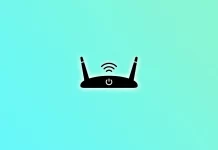An IP address is a system identifier that identifies, structures, and delivers packets of data from network A to network B. Each time you visit a website, your device sends a request to the website server, and the server sends the requested information to the device.
Usually, this process takes less than a minute, but it’s still enough time for third parties/companies to intercept your connection and gain access to your data. Your IP address alone is enough to figure out where you live, even if the location services on your device are disabled.
A VPN (Virtual Private Network) is software that encrypts incoming and outgoing traffic. Any such tool is used to limit the tracking of your Internet activity. Some people use VPN services to access sites blocked in a particular country. Simply put, VPNs are used to mask your IP. It ensures that your real IP address is hidden from web trackers and third parties.
Anyway, here’s more about VPN and how it affects your IP address.
Why do you may need to hide the IP address
Everyone has their own reasons for protecting your privacy on the Internet by hiding your IP address, but among them, you can highlight the most common ones:
Hide network activity from your ISP
Your ISP knows everything about you: your name, address, phone number, payment information, maybe even family, and more. The ISP sees everything you do on the Internet unless you encrypt and anonymize your online activity.
Every Internet device that comes online is given an IP address by the ISP. It keeps a log of what addresses have been assigned to whom and when. This allows you to find out exactly who was on a particular site on a particular day and hour.
If you hide your IP address and encrypt your traffic with a VPN, you’ll have two advantages:
- The ISP won’t know what you’re doing on the Internet.
- Websites, trackers, ads, and others won’t see your IP address and location.
In the U.S. since 2017, providers are allowed to sell the history of visited pages to advertisers and other individuals. If you hide your IP address and encrypt your traffic with a good VPN service, you won’t have this problem.
Conceal confidential information
You may need the Internet to access personal and medical information that you don’t want to share with anyone. In such cases, withholding your IP address will allow you to access this information discreetly
Public Wi-Fi hotspots are another risk area for sensitive information. They have developed a reputation as gathering places for shady individuals who steal personal user data. If you hide your IP address when connecting to these hotspots, primarily by using a VPN, you get a certain level of protection against data theft that can be linked to you.
Bypass geographic blocking
Geographic blocking uses your IP address to decide whether or not you can access certain content. Different sites and countries continue to restrict access, and users continue to bypass these restrictions.
If you hide your IP address or rather use the IP address allowed on a certain site, you will be able to access its content without having to physically be in the allowed region.
Avoid oversight by government agencies
Some countries conduct mass surveillance of Internet traffic, looking at every bit of information regarding user activity for no obvious reason and against the norms of international law.
Changing the IP address and encrypting the traffic can provide some protection from surveillance by them.
How does a VPN hide an IP address
The VPN service first provides you with a connection to a private network of servers and redirects all of your traffic through this network. In this way, your real IP address is masked by one of the IP addresses of this network, making it almost impossible to identify your real IP address.
Your data is transmitted through an encrypted tunnel between your device and a private network server, so you can effectively block anyone who wants to interfere with your connection.
Some advanced VPN providers even send multiple requests simultaneously when you connect to a website, making it much harder to trace your IP address.
The best VPN services have an emergency internet disconnect. When your VPN connection suddenly goes down, these switches immediately shut down your connection to the Internet. This is done so that your real IP address cannot be seen on the internet. The best VPN services encrypt users’ DNS requests. This is done so that your ISP and other observers can’t find out what sites you’re visiting based on DNS queries.





